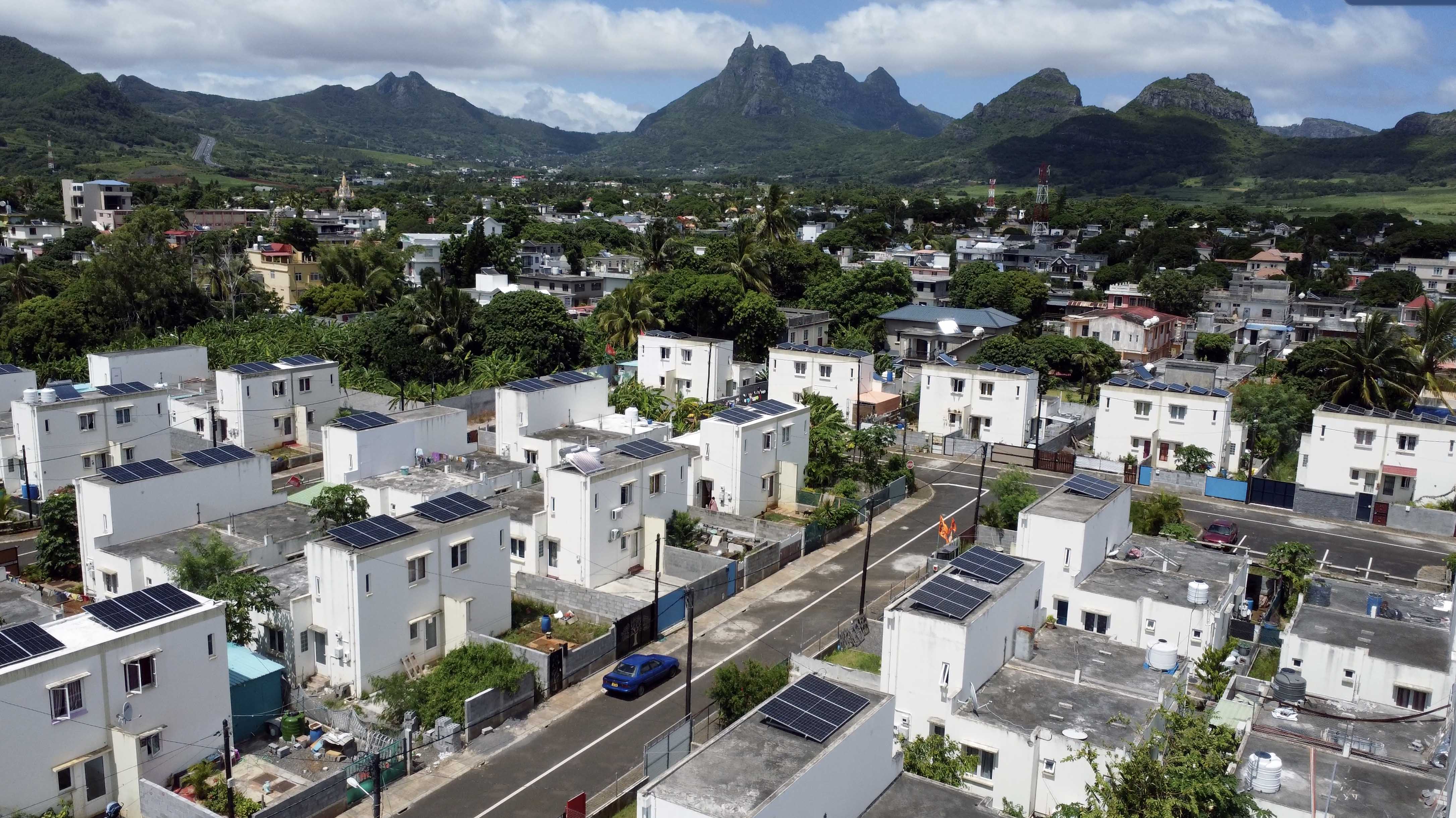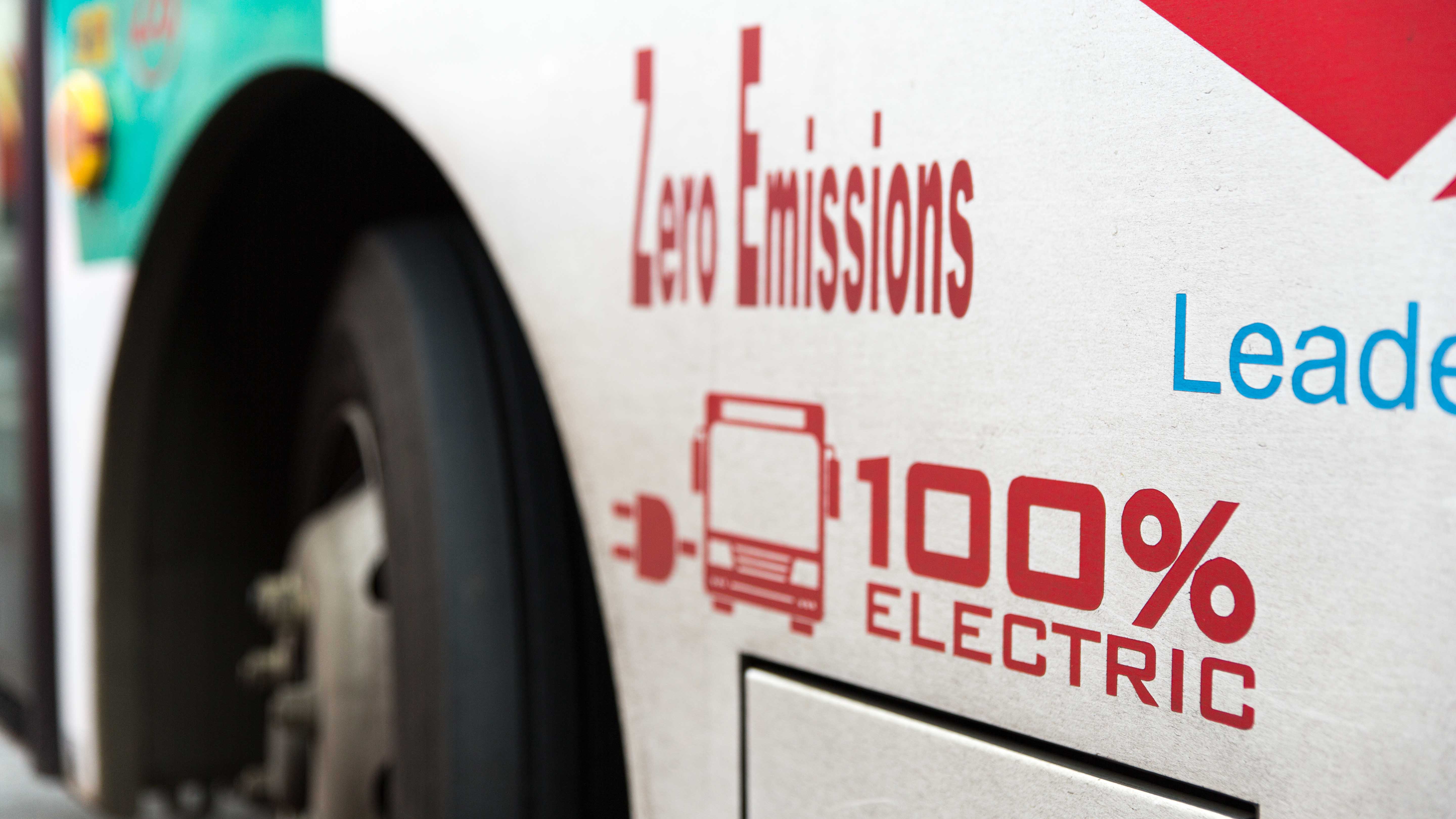Paving the Way for Renewable Energy in Mauritius: A Commitment to Sustainable Action
November 20, 2024

Mauritius faces the many challenges of Small Island Developing States (SIDS) including a disproportionate vulnerability to climate change. Rising sea levels, extreme weather events and shifting ecosystems are jeopardizing the environment, the economy and the livelihoods of the population. In that respect, the UNDP Mauritius and Seychelles Multi-Country Office (MCO), in collaboration with the Government of Mauritius, is spearheading a transformative and pivotal shift towards a low-carbon economy in the country.

In 2023, UNDP Mauritius supported the deployment of free rooftop photovoltaic kits to 46 households of Résidence Muguet, a National Housing Company Ltd (NHDC Ltd) settlement in Montagne Longue.
The Renewable Energy Landscape
Mauritius aims to increase the share of renewable energy in its electricity mix to 60% by 2030. This ambitious goal not only enhances energy security but also aligns with the country’s commitment to reducing greenhouse gas (GHG) emissions by 40% by the same year, as per its revised National Determined Contribution (2021).
To support this ambitious target, the UNDP Mauritius and Seychelles MCO, through the transition to a low-carbon economy programme funded by the Green Climate Fund, is ensuring the deployment of 25 megawatts (MW) of rooftop solar photovoltaic panels for low- and middle-income households, NGOs, and public buildings. Furthermore, this initiative has leveraged technologies such as Battery Energy Storage Systems and Smart Grids to support the deployment of a 18 MW battery energy storage system and enhance the grid’s capacity to integrate up to 185 MW of intermittent renewable energy.

Empowering Communities
Through this GCF-funded project, the UNDP has launched training programs designed to enhance the skills of women, youth, entrepreneurs, and government staff. For instance, to date more than 200 women have benefitted from training on solar photovoltaic technology. Such initiatives empower individuals to actively champion the adoption of renewable energy technologies, in line with SDG 5 (Gender equality) and SDG 8 (Decent Work and Economic Growth).
A Portfolio Approach to Effective Climate Change Mitigation in Mauritius
Effective measures to reduce GHG emission require a holistic approach and structural transformations. The UNDP is thus adopting a comprehensive portfolio approach towards climate change mitigation by supporting low-carbon development opportunities which address immediate challenges and pave the way for long-term sustainability.
Another significant stride toward reducing its GHG emissions is the Electric Bus project, funded by the Global Environment Facility and implemented by the UNDP. This project aims to promote capital investments into developing sustainable transport infrastructure on the island. It will not only curtail reliance on fossil fuels but also stimulate economic growth. These initiatives are complemented by the Mauritius CBIT initiative, which seeks to establish a permanent national transparency framework and a strong Measurement, Reporting, and Verification system. This GEF-funded project aims to deliver crucial data for evidence-based decision-making to curb the country's greenhouse gas emissions, aligning with its commitments under the Paris Agreement on climate change.
The portfolio approach adopted by UNDP towards climate change mitigation caters for the interconnected threats posed by climate change and environmental degradation. It also strengthens key economic sectors and supports the sustainable management of fragile ecosystems through job creation and innovation.

The UNDP is thus adopting a comprehensive portfolio approach towards climate change mitigation by supporting low-carbon development opportunities which address immediate challenges and pave the way for long-term sustainability.
Watch Our Journey
The successful execution of these initiatives is made possible through the support of various funding agencies, including the Green Climate Fund (GCF), the Global Environment Facility (GEF), the British High Commission (BHC), and the Australian High Commission (AHC).
As Mauritius forges ahead on its path to a sustainable and resilient future, UNDP’s commitment to renewable energy and climate action remains unwavering.

 Locations
Locations